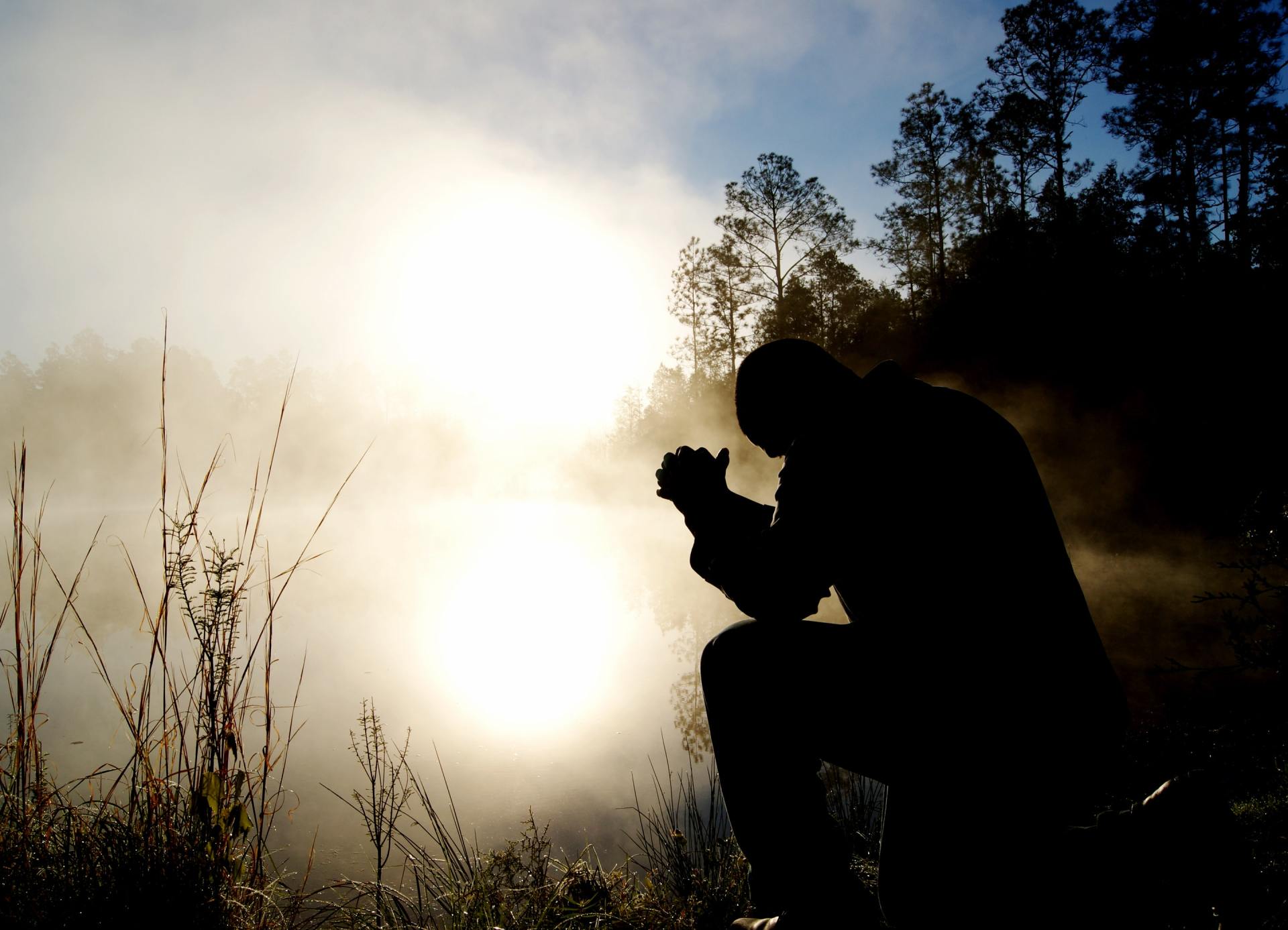The Imitation of Christ VII
The Practice of Prayer
"We are built for contemplation."
Martin Laird, Into the Silent Land: A Guide to the Christian Practice of Contemplation, p. 1
Author's Note: This essay series, The Imitation of Christ, has been prompted by Thomas à Kempis' book of the same name. I am particularly interested in exploring these practices because of a book my friend, colleague, and co-author, Bryan Taylor, and I are working on, using The Imitation of Christ as its foundation.
These are vast and deep subjects and, as with most of my writing, I learn more and more about what I think and know, and about what I think I think I know, what I don’t know, and what I understand about them, I think, by writing about them. Readers are likely to have additional or differing insights on these themes, and I invite you to join the Profound Living or Practices for Deeper Living groups, and/or the Profound Living page on Facebook if you have thoughts or ideas to contribute to any of these topics.

“All that is within me will
Be filled with joy
When my soul will be
Perfectly one with God.”
~ Thomas à Kempis, The Imitation of Christ,
From Favorite Prayers from the Imitation of Christ, p. 41
There are so many prayers in Thomas à Kempis’ book, The Imitation of Christ that more than 100 of them were compiled into a handy little “Favorite Prayers from the Imitation of Christ” book. The vastness of what has been written about prayer, and the centuries over which it has been written, by people ranging from theological giants to regular folks like us, is so immense that it is more than daunting when a person like me thinks of prayer, considers all the types of prayer, and feels the weight of all that’s been written about it for centuries. It’s easy to say, “Just forget it”, thinking – as my old MBA stats teacher would laughingly say, “It’s too hard!” So, here I'll just talk about my own practices a bit.
But, truthfully, it is as simple to pray as one wants to make it, and can be as deep as one wants to take it. It is continuously available, at no cost of anything except your time and attention.
I write here from the perspective of a lifelong Methodist, but prayer is an integral part of any faith tradition you might come from, and your thoughts and experience might be quite different than mine. It would be a rich experience indeed were I to be able to participate in a much wider range of prayer than I have to date.
Prayer, for people like me who resist being told what to do or what to think, is easy to resist simply because we might have been told we should do it or, worse, told how to do it acceptably, or that there's a "right" way. I am not one to willingly go through the motions just because someone said I should do something.
And yet.
And yet, I pray every morning, usually for twenty minutes. Integrating this practice into my life has been continuously transforming. I go through the same, simple routine every day, varying little, and have for years. For me, the discipline of prayer is one of learning or, more accurately, discovering. It is going deeper, over time, into a well which has no achievable bottom. When Foster (1998) discovered that “real prayer is something we learn”, he found it liberating. It “set him free to question, to experiment, even to fail, for I knew I was learning” (p. 36).
Many authors have contributed to my understanding of, and desire for, a more contemplative life and less of a less rushing through life. The two most important of those have been Richard Rohr and Thomas Merton, two Catholic priests and authors. The two people who have most contributed to my daily prayer practice are a Buddhist named Thich Nhất Hạnh, and a Catholic monk named Thomas Keating. Both strip away everything but the essence of prayer and leave only the intimacy of the present moment.
This is called kenosis, and is a self-emptying of thoughts, hopes, worries, and of being completely relaxed in the nonce, completely receptive to whatever the here and now might bring. In Christian prayer, that would mean being completely receptive to experiencing the divine, that something-however-hard-it-is-to-describe greater than ourselves yet a part of ourselves. That still small voice. From a Buddhist perspective, that would mean being “one with everything”.
The second way I pray every morning is through my gratefulness journal. These are prayers of thanks. I have taken to follow Br. David Steindl-Rast (2013) and write, “Source of all blessings, you bless us (or me) with….”, and then I list what comes to mind in my journal, saying thank you for these, and ending with “May I….”. May I never take these gifts for granted. May I learn to be more generous myself. May I…. May I…
These are the two ways prayer has been most transformational and meaningful for me in recent years, but they are not, and have not been, the only significant prayer in my life, by any means. The Lord’s Prayer, the Jesus Prayer (Lord Jesus Christ, Son of God, have mercy on me, a sinner.”), weekly prayers in church or other settings, petitionary prayers, have all been of deep import on my life.
But that’s just me. Each person in their own place of spirituality is different. Each connects to that something greater than ourselves or anything we might imagine in ways that work best for us, at particular times for us.
Finally, again, prayer can be as simple as one wants it to be. Just based on my own experience I think that perhaps for it to be transformational, that is to transform us throughout, it will need become a practice, and not only something one does when there's a special need or special occasion. The durable, transformational power of prayer - again, from my experience - comes from making it as a regular, best daily, practice.
And then prayer becomes a way of life.
“To pray is to change. Prayer is the central avenue God uses to transform us…The closer we come to the heartbeat of God the more we see our need and the more we desire to be conformed to Christ”
~Richard Foster, Celebration of Discipline, p. 33).
Sources
Favorite Prayers from The Imitation of Christ (2013). Catholic Book Publishing Corp.
Foster, R. J. (1998). Celebration of discipline: the path to spiritual growth (20th anniversary ed.). HarperSanFrancisco.
Hạnh, T. N. (1991). Peace is every step: the path of mindfulness in everyday life. Bantam Books.
Keating, T. (2006). Open mind, open heart: the contemplative dimension of the Gospel (New ed.). Continuum. Table of contents only http://www.loc.gov/catdir/toc/fy0714/2007272870.html
à Kempis, T. (2013). The Imitation of Christ (R. Challoner, Trans.). Tan Books & Pub.
Willard, D. (1990). The spirit of the disciplines: understanding how God changes lives. HarperSanFrancisco.
Laird, M. (2006). Into the Silent Land: A Guide to the Christian Practice of Contemplation. Oxford University Press.
Steindl-Rast, D. (2013). 99 blessings (1st ed.). Image Books.
Presence, Four Perspectives - https://www.profoundliving.live/presence-four-perspectives











